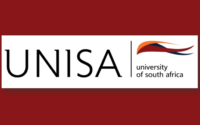
Student Satisfaction as a Predictor of Retention in a Professional Online For-Profit Higher Education Institution
This study expanded on prior satisfaction and retention research by exploring this relationship within the online for-profit sector. An ex post facto design was utilized at an online for-profit undergraduate institution with programs in the creative arts to explore the relationship between student satisfaction as measured by the Priorities Survey for Online Learners (PSOL) and […]













